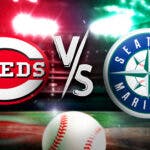- CLUTCH Summary: A pioneer in baseball, Ichiro Suzuki was not only one of the best Seattle Mariners players ever, but is a sure fire Hall of Fame talent.
- So popular internationally, Ichiro was known on a first name basis as if he were Oprah.
- There will unlikely ever be another player as talented, with as much cultural impact, as Ichiro Suzuki.
After 18-plus seasons in the majors, over 4,367 professional hits and multiple hit records in the MLB, Ichiro Suzuki is a surefire first-ballot Hall of Famer. But to merely label Ichiro as a phenomenal baseball player would be doing his legacy a tremendous disservice.
There were Japanese players that made the move to the United States before Ichiro came over in 2001. Masanori Murakami was the first Japanese-born player to appear in the MLB in 1964, playing in 54 games with the San Francisco Giants.
Just over 30 years later, Hideo Nomo became the second man through the door, winning the National League Rookie of the Year in 1995 and throwing a pair of no-hitters in 12 big-league seasons.
But no Japanese player made the MLB their proving ground like Ichiro. Whereas every other native debuting before him was a pitcher, Ichiro was the first real position player to come from the Far East. Many wondered whether his success would translate against major league pitching.
Putting all doubt to rest
By the conclusion of his rookie year, the answer those questions was a resounding yes. Ichiro would post a .350 clip and tally 242 hits along with 56 stolen bases en route to the AL MVP and Rookie of the Year awards, becoming the first player since Fred Lynn to win both awards in the same season.
What followed was arguably the greatest 10-year run by any hitter of the modern era. Suzuki notched at least 200 hits in each season from 2001-2010, a record for consecutive seasons with 200 hits. He hit at least .300 every year during that stretch, and four times his batting averaged eclipsed .350 as he put on a clinic day in and day out.
Not only did Ichiro excel with the bat, but he also won the Gold Glove every year in that same period of time while stealing 383 bases, third-most in the decade.
In an era that also saw generational talents like Alex Rodriguez, Albert Pujols and Manny Ramirez, Suzuki posted the fourth-best fWAR in the decade, which speaks to his ability to produce at the highest level despite not being a power hitter. And he achieved all this during the live-ball era when steroid testing was only just beginning.
Ichiro's unique style at the plate was as iconic as his no. 51 jersey has become in Seattle. His ability to hit to all fields and leg out bunts and infield dribblers and then steal second and third made him a constant threat. He could take a ball on the outer half and slap it to left field while practically making contact out of the batter's box.
The kind of individualism he possessed was something that arguably has never been seen before or since. But those characteristics–as well as his tremendous success–have meant everything to the Japanese players of this generation.
Setting the example
Before Ichiro, just 10 Japanese-born players had made MLB appearances (and, as previously mentioned, all of them were pitchers). But since he debuted in 2001, over 41 players have played in a major league game.
While the trend of mostly pitchers has continued, Ichiro opened the door for positional stars like Hideki Matsui and Kosuke Fukudome to come to the United States and try their hand in the MLB.
No player has come close to matching Suzuki's accomplishments, but there is a bigger spotlight on Japanese talent because of his contributions to the game. And with two-way superstar Shohei Ohtani looking to take up the mantle, Japanese players are still making a tremendous impact around the league.
There may be no better depiction of how much Ichiro means to his country and to baseball than his final sendoff in Japan, when Mariners newcomer and Japanese star Yusei Kikuchi was brought to tears as Ichiro was brought off the field.
So yes, Ichiro will mostly be remembered for his amazing all-around talents and soft-spoken persona. But he should also be cherished as a true ambassador and pioneer in the annals of baseball history.



